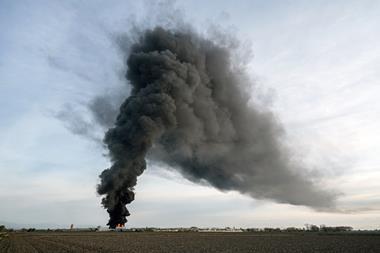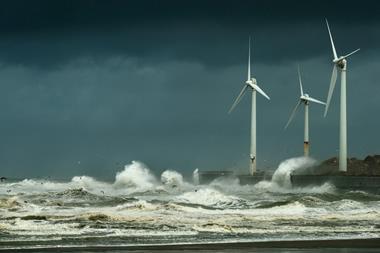The EU has launched the first phase of its carbon border tariff on imported steel, fertilisers, hydrogen, and other goods. The carbon border adjustment mechanism (CBAM) aims to bolster the bloc’s green commitments and encourage cleaner industrial practices in non-EU countries by introducing a tax on the embedded carbon emissions associated with imported goods.
The European Commission notes that CBAM will ensure the carbon price of imports equals that of goods produced domestically to support the decarbonisation of EU industry. ‘A key consideration in creating incentives is whether they can change behaviour… It may bring energy intensive industry back onshore, if it lowers carbon emissions,’ says Chris Dent, an expert in large scale energy systems based at the University of Edinburgh, UK.
Currently, CBAM only applies to imports of cement, iron and steel, aluminium, fertilisers, electricity, and hydrogen. According to Dent, one reason that such tariffs have not been implemented sooner is due to the difficulty in producing accurate estimates for embedded carbon emissions in different goods. ‘Steel and cement may have been prioritised as the embedded carbon is relatively easy to estimate,’ he notes.
On 1 October CBAM entered a transitional phase during which importers will have to report the embedded emissions in the goods they bring into the EU. The full introduction of the scheme will be staggered until 2026, at which point importers will begin paying tariffs based on the current price of EU emission trading scheme allowances.
The initial pilot period will enable stakeholders to adjust to the system and allow the EU to collect data and refine its methodology before it becomes fully operational.
Elisabetta Venezia, an economist at the University of Bari, Italy, says that the system provides a way to encourage non-EU countries to rethink policies that are not environmentally sustainable.
‘The test period is important to evaluate the reaction of firms in terms of localisation and in terms of international trades… to evaluate the final effects at the international level and to calculate the effects of the burden on the prices of these permits,’ she notes. ‘A revision could follow this period.’
To support businesses during the transition, the commission has developed training materials and specific IT tools to help importers perform the required calculations. Dent notes that ‘transparency and standardisation of the calculations’ will help to reduce the costs of complying with the regulations and should make costs fairer for smaller businesses.
Moving forward, the commission plans to assess the feasibility of including other goods within the scope of CBAM, with additional sectors potentially coming into the system by 2030.

















No comments yet